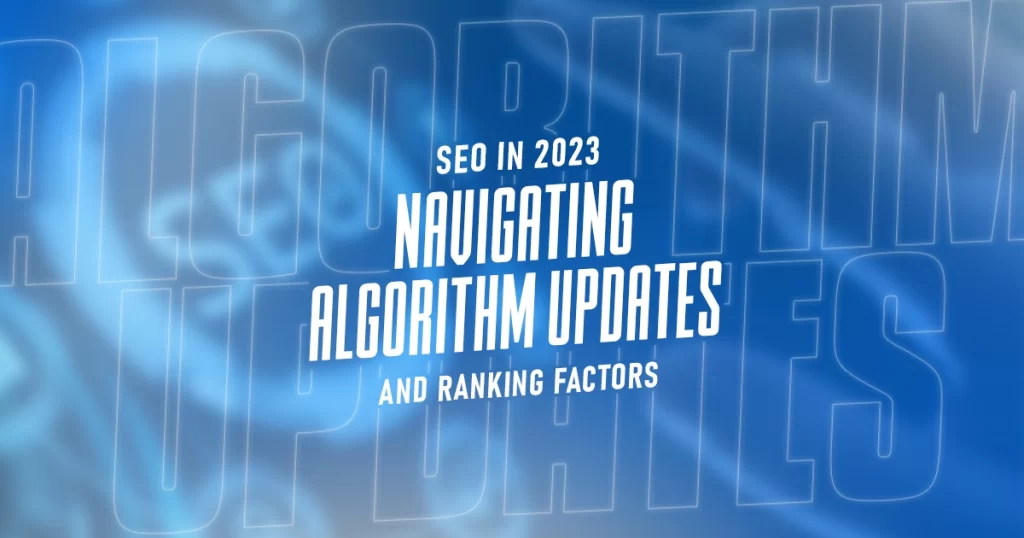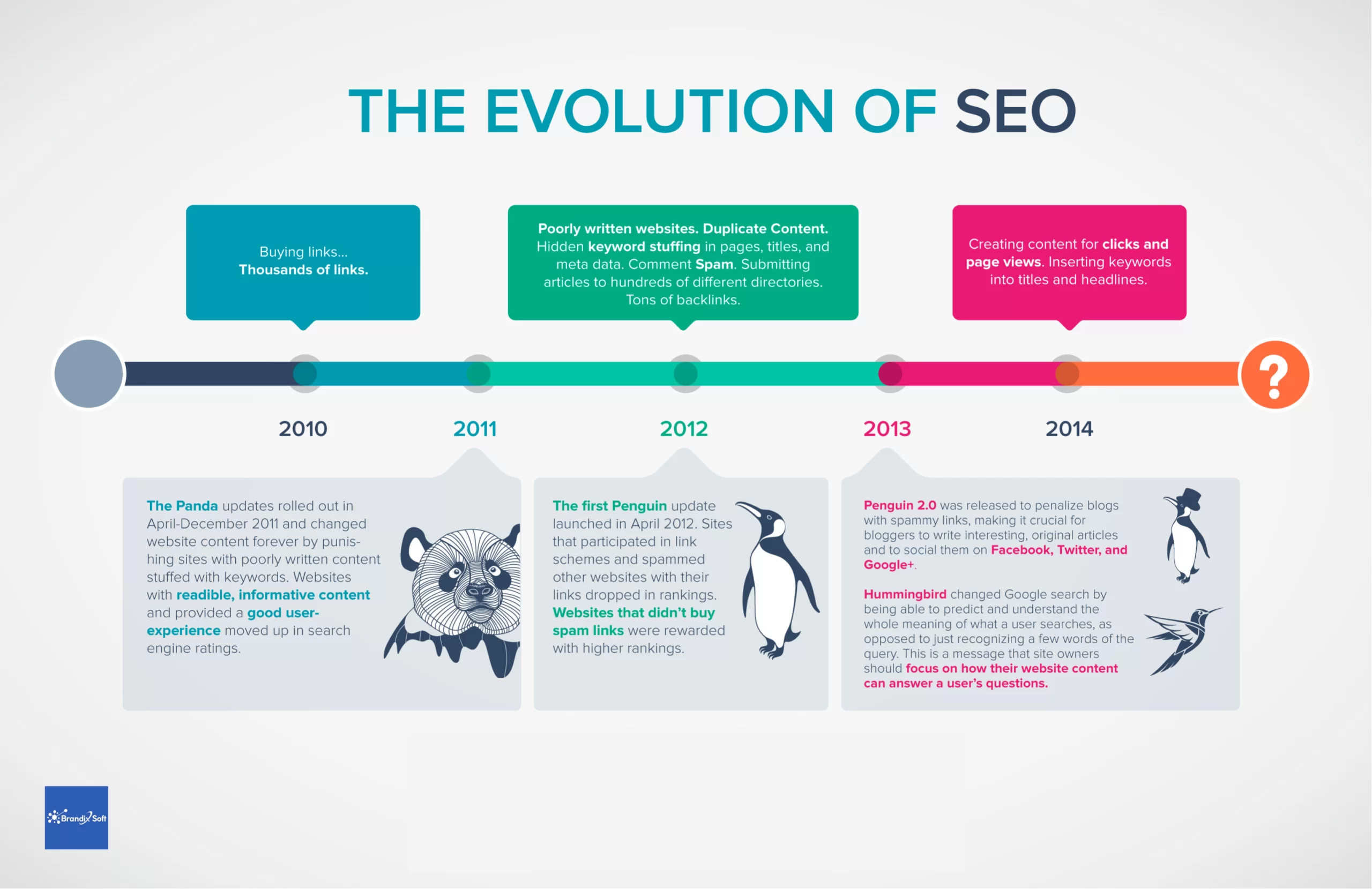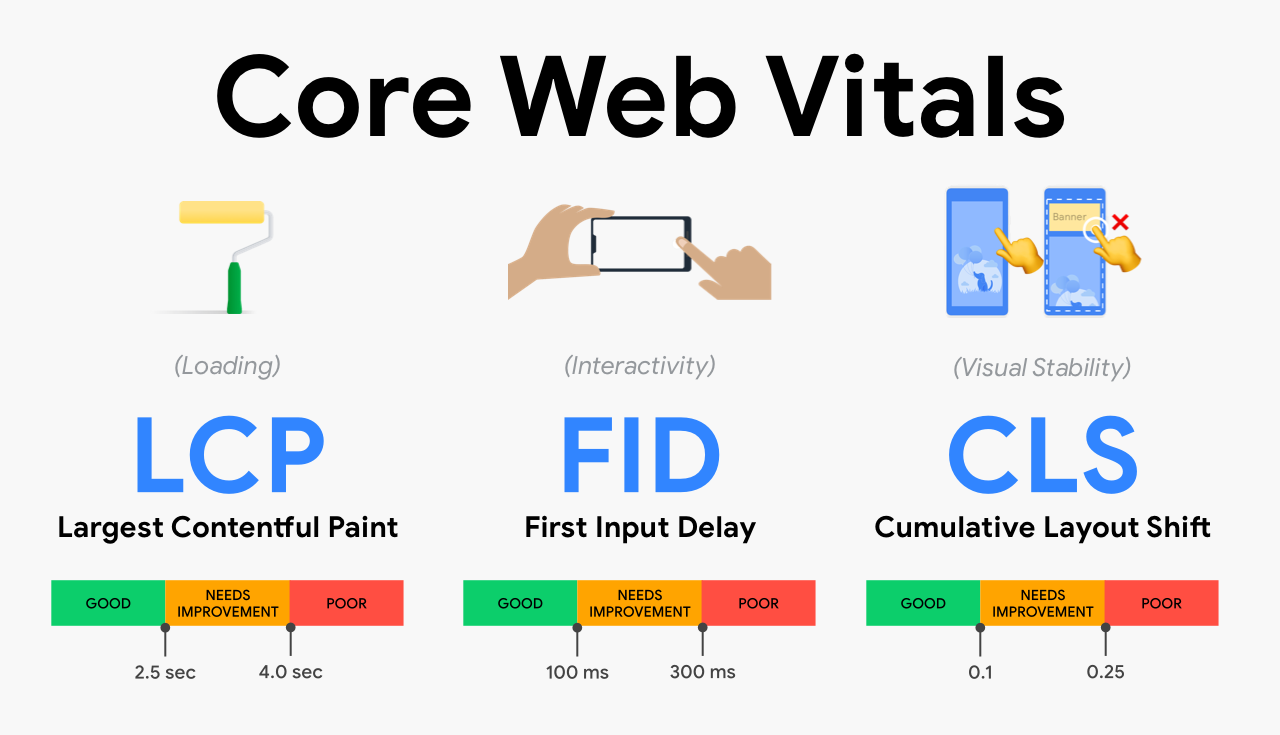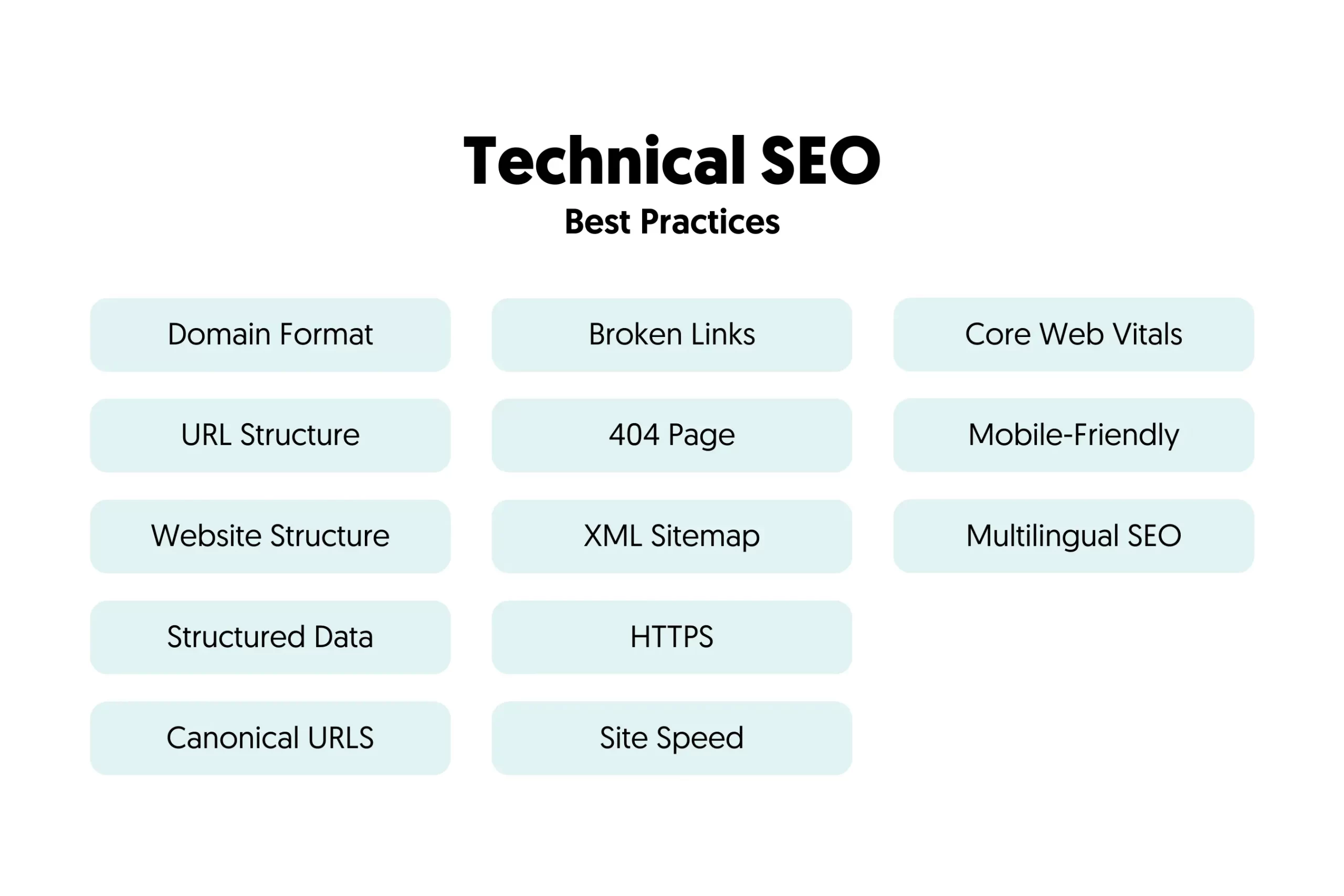
With the advancements in the digital world, every website owner wants to grab the highest position in search engines, i.e., Google or Bing, to increase their visibility. SEO plays a crucial role in website rankings, which is based on the content quality, its relevance to user search queries, appropriate keyword and backlinks usage, server speed, publishing frequency, etc.
Search engines are rapidly shifting their core updates to bring more precise results for user searches. Navigating these algorithm updates and understanding the key ranking factors helps develop an SEO strategy. Let’s have a look at Google algorithm updates for SEO in 2023.
Ranking higher once doesn’t guarantee lifetime ranking. The provision of the best and most up-to-date SERP in response to search queries is the primary concern of search engines. Search engines are getting advanced day by day. It started with text-based algorithms in 1990, followed by,
19902000200020102014, E-EAT (addition of another E for Experience) in 20222020-2023
The core updates are the changes that took place by Google for ranking web pages in the SERPs. Google is evolving its core updates rapidly, keeping in view the content quality and relevance. Implementing these core updates in the web content can affect 5-10% of the SERPs.
The core updates are capable of ranking the low-traffic website at the top and dropping a high-ranked website to a lower level by shuffling the search ranking of the indexed web pages. It doesn’t only rank or de-rank the websites but restructures the search engine result pages in response to the user search, utilizing its core updates to add or remove alternative listings in the SERPs.
If Google rolls out these core updates, your website ranking will be changed. However, Google notifies the users about rolling out certain core updates. It announces the upcoming and advanced core updates in a blog published on Google’s Webmaster Central Blog.
Navigating the algorithm updates and implementing them on website content brings massive organic traffic to your website. Let’s have a look at some case studies of how certain websites got ranked higher by fulfilling the criteria of Google’s core updates.
HubPages is a content publishing website. It could have been better ranked but experienced the least website traffic under the Panda update 2011. HubPages then went for a content audit for quality check and improved the content. It eventually claimed that such strategic changes resulted in a 30% increase in organic traffic within a few months.
Search Engine Roundtable is an SEO-based news website that experienced huge fluctuations in its article ranking when BERT was introduced in 2019. They say that articles based on user intent get ranked and the others get the least traffic. Considering user intent in new articles brings more traffic to them.
Outdoor Gear Lab experienced that their website got deranked in 2021. Further evaluation clarified that their website needed a page experience update. They updated page load time and mobile responsiveness to get ranked higher again.
Keeping in mind Google’s core updates, certain factors help the website owner in SEO in 2023. Let’s have a look at these ranking factors:
Quality always beats quantity. Google serves its users with quality content. A well-researched, unique, up-to-date, user intent-based, high-quality content consisting of primary and secondary keywords relevant to the user query ranks the indexed web pages into the SERPs.
Backlinks are inter-joining links to other websites. They prolong the user retention on the search engine and engage the user on different websites. The web pages with backlinks or inbound links get more organic traffic than those with fewer backlinks. Getting backlinks from an authoritative or ranked website brings you into the spotlight under Google’s algorithm, ultimately increasing your website traffic and ranking.
The loading speed of the website is a prime ranking factor. It’s a part of CWVs (Core Web Vitals). A website with less loading speed frustrates the user and reduces user retention. Such websites don’t come under the Google algorithm and keep a low ranking.

Tons of searchers use search engines on mobiles for search queries. The websites on the search engines must be mobile-friendly to be used by a vast population. The web pages designed for PC aren’t optimized for mobile, resulting in user dissatisfaction with the web pages. This reduces the organic traffic and website ranking.
UX refers to how the user reacts to your site. User experience depends on your website presentation, loading speed, mobile friendliness, and content quality. These factors engage the user and increase their retention on the website. An enjoyable user experience comes under the algorithm, helping rank websites.
In 2023, SEO is more complex than it seems, requiring many technicalities to rank a website on Google. Technical aspects of SEO involve website structure, schema markup, crawlability, indexing, content web vitals, and much more.

The previously implemented EAT has now another E for the experience added. Now, Google’s algorithm checks the experience of the content author by utilizing the keywords relevant to the user search queries.
There needs to be more than a well-structured website for SEO. The web ranking of your web pages into the SERPs requires the website to be secure. HTTP protocols should be followed for website security to come under Google’s eye.
Adapting to Google’s algorithm updates and mastering the ranking factors are the key aspects of SEO. Following are the ways to navigate the SEO challenges in 2023.
Google Search Central Blog and SEO news websites are the biggest resources to keep yourself updated on Google’s latest core updates.
Keeping yourself updated with the market trends, evolving timely with them, and adapting to the demanding protocols can help you surpass such challenges.
Staying on one search engine takes a long time to be highlighted in the market. The best way to get quick visibility is to join social media platforms and inter-share the Links. Leveraging voice search optimization can be a helpful approach, too.
As we traverse the SEO journey in 2023, the perpetual evolution of algorithms and ranking factors continue redefining digital visibility rules. Adapting strategies to align with these dynamic changes is essential for businesses aiming to thrive in the competitive digital globe. Prioritizing user experience, content relevance, and technical optimization stands significantly in this journey. Businesses can secure a stronger position in this digital era by adapting to innovation, consistently delivering high-quality and user-centric content, and staying attuned to the ever-evolving SEO world.